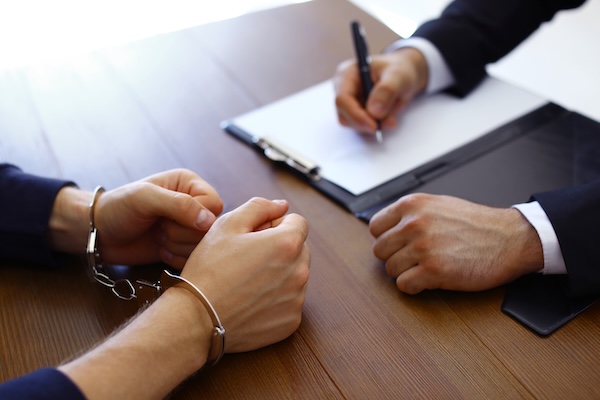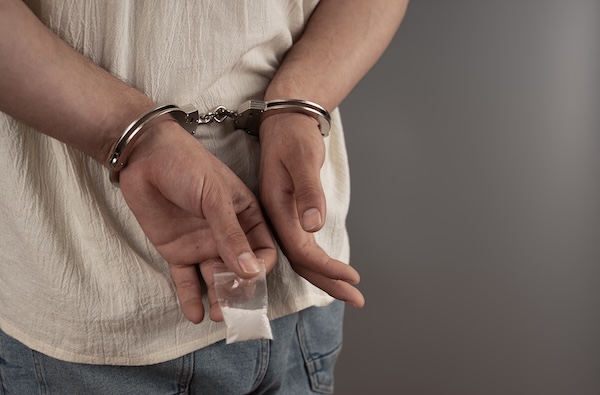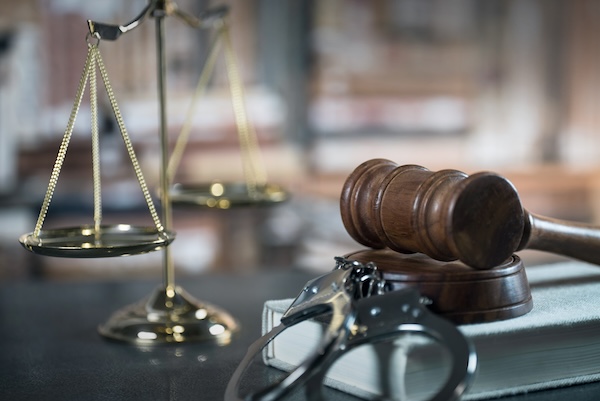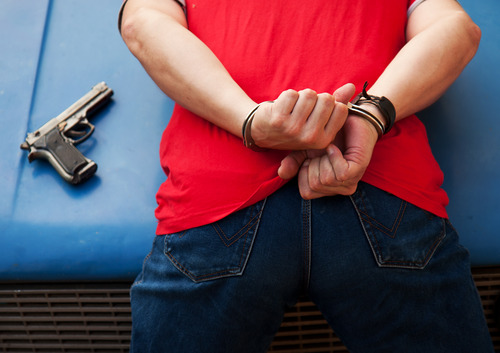Understanding the Seriousness of Drug Trafficking Charges and the Importance of Legal Representation
Being arrested for drug trafficking is a serious and stressful situation, one that can significantly impact your life. Whether you are facing state or federal charges, the consequences can be severe, including long prison sentences, hefty fines, and a permanent criminal record. These charges can change the course of your future, making it essential to understand the critical steps to take after your arrest to protect your rights and safeguard your future.
The decisions you make immediately after being arrested can greatly influence the outcome of your case. Whether it’s asserting your right to remain silent, contacting a Nashville Criminal Defense Lawyer, or avoiding common mistakes, these early steps are crucial. An experienced attorney will evaluate the circumstances of your arrest, review the evidence, and build a strong defense strategy tailored to your case. This expert legal counsel can make a significant difference in the charges you face and the potential penalties.
In situations as serious as drug trafficking charges, timing is everything. By contacting a skilled criminal defense lawyer immediately, you can ensure that your rights are protected and that all legal options are explored. With the right legal representation, it’s possible to reduce the severity of the charges or even have them dismissed, providing a much-needed chance for a favorable outcome.
Understanding Your Rights and the Arrest Process
The first thing to do if you’re arrested for drug trafficking is to stay calm and remember your rights. Under the Fifth Amendment, you have the right to remain silent after an arrest. It’s essential to exercise this right, as anything you say could be used against you in court. Instead of engaging with police officers or trying to explain the situation, simply state that you are invoking your right to remain silent until you have an experienced criminal defense lawyer present.
Another vital right you should exercise is the right to legal counsel. You have the right to speak to a lawyer before answering any questions, and this is crucial. Your attorney will help you navigate the legal process and protect your rights during questioning.
Law enforcement officers are required to follow certain procedures during an arrest, and understanding these procedures can help you avoid self-incrimination. Be respectful but firm in asserting your rights. It’s crucial to understand that you don’t need to answer questions until your criminal defense attorney is present.
The Role of an Experienced Criminal Defense Attorney
One of the most important things you can do after being arrested for drug trafficking charges is to contact an experienced criminal defense attorney immediately. A skilled lawyer will evaluate every detail of your case and create a defense strategy to help you fight the charges. They will review the evidence, investigate how law enforcement conducted the arrest, and ensure that your rights were respected during the process.
An experienced criminal defense attorney will also guide you through the complexities of drug laws. Federal and state laws surrounding drug trafficking can be confusing and overwhelming. Having a lawyer who understands these laws ensures that you have the best possible chance at a favorable outcome.
What Happens After the Arrest: The Legal Process
After you’ve been arrested for drug trafficking, the legal process begins. Understanding each step of the process will help you navigate the situation more effectively and make informed decisions throughout your case.
Arraignment: The First Court Appearance
- Formal Reading of Charges: The first step is often your arraignment, where the judge reads the charges against you. This is a critical moment where the formal accusations are put on record.
- Entering a Plea: At this point, you will typically enter a plea of guilty, not guilty, or no contest. Your attorney may advise pleading not guilty initially, even if a plea deal is being considered for later.
- Bail Hearing: Depending on the severity of the charges, the judge may also set bail or release conditions. If bail is set, it allows you to be released until your next court date, assuming you meet the bail amount.
Investigation and Evidence Review
- Lawyer’s Investigation: After the arraignment, your criminal defense lawyer will begin reviewing the evidence collected by law enforcement. They will scrutinize the strength of the prosecution’s case, including examining police reports, witness statements, and any physical evidence.
- Challenge the Arrest: Your lawyer will determine if probable cause existed for your arrest. If the arrest was not supported by proper cause, they may file motions to have the case dismissed or evidence excluded.
- Illegal Search and Seizure: Your attorney will also evaluate whether your rights were violated during the search or seizure. If the police conducted an illegal search or failed to follow legal procedures, they might challenge the evidence obtained as a result.
Review of Drug Trafficking Charges
- Assessing the Charges: Understanding the details of the drug trafficking charges is vital. Factors such as the quantity of drugs involved and whether the trafficking spanned state lines or was an international case can heavily impact the legal process.
- Federal vs. State Charges: If the crime involves crossing state borders or international boundaries, your case may be prosecuted under federal law. Federal drug trafficking laws often involve mandatory minimum sentences, which can lead to harsher penalties. Having a clear understanding of these rules allows your lawyer to tailor the defense strategy accordingly.
Pre-Trial Motions and Discovery
- Discovery Process: Your attorney will request discovery, which means accessing all evidence the prosecution plans to use against you. This can include witness testimony, police documentation, and physical evidence like drugs. Your lawyer will review this information closely to identify weaknesses in the case.
- Pre-Trial Motions: Your lawyer may file motions to exclude certain evidence or dismiss the charges based on the investigation’s findings. If the evidence was obtained unlawfully, a motion to suppress can be filed to keep it from being used in court.
Negotiation and Plea Bargaining
- Plea Deals: After reviewing the evidence, your attorney may consider negotiating a plea deal with the prosecution. A plea bargain could result in reduced charges or a lighter sentence in exchange for a guilty plea. This can be a strategic choice if the prosecution has strong evidence.
- Trial Preparation: If a plea deal is not in your best interest, your lawyer will prepare for trial. This involves gathering expert witnesses, preparing your defense, and formulating arguments to challenge the prosecution’s case.
Trial
- Court Process: If your case proceeds to trial, your criminal defense lawyer will represent you during the proceedings. This includes presenting your side of the case, questioning witnesses, and making arguments to refute the prosecution’s allegations.
- Verdict and Sentencing: Once the trial concludes, the jury or judge will deliberate and issue a verdict. If found guilty, a sentencing hearing will be scheduled to determine the penalties. Depending on the severity of the charges, the sentence could involve prison time, probation, or alternative sentencing options.
By understanding each phase of the legal process after an arrest for drug trafficking, you can work closely with your criminal defense lawyer to build the strongest possible defense. Your lawyer’s role is crucial in navigating the complexity of drug laws, challenging illegal actions, and ensuring that your rights are protected every step of the way.
Common Mistakes to Avoid When Facing Drug Trafficking Charges
If you are facing drug trafficking charges, avoiding a few common mistakes can significantly impact the outcome of your case.
- Speaking to Law Enforcement Without Legal Representation
Anything you say during police questioning can be used against you. Never speak to law enforcement officers without an experienced criminal defense attorney present. Even if you believe you’re innocent, anything you say can be misconstrued or used as evidence against you in court. - Resisting Arrest
Even though being arrested for drug trafficking can feel overwhelming, resisting arrest can make matters worse. Resisting arrest can lead to additional criminal charges and complicate your case further. Always remain calm and comply with the instructions from law enforcement officers. - Signing Documents Without Understanding Them
Another mistake is signing documents or waivers without fully understanding what you’re agreeing to. Always consult with your criminal defense lawyer before signing anything related to your case. Signing without understanding can lead to unintended consequences that can harm your defense.
Possible Defenses and Strategies
Several defenses might be available to you if you’re facing drug trafficking charges. Some of the most common defenses include:
- Illegal Search or Seizure: If law enforcement officers did not have a valid search warrant or probable cause to search your property or person, your lawyer may argue that the evidence was obtained unlawfully and should be excluded from your case.
- Lack of Knowledge or Intent: You may argue that you did not knowingly possess or distribute drugs, which could weaken the prosecution’s case. Proving lack of intent can be a powerful defense in drug trafficking cases.
- Entrapment: If law enforcement agencies encouraged or coerced you into committing the crime, your lawyer may use the defense of entrapment to challenge the charges.
Your criminal defense attorney will evaluate the specific facts of your case and tailor a defense strategy designed to challenge the drug trafficking charges against you.
Long-Term Consequences of a Drug Trafficking Conviction
A drug trafficking conviction can have far-reaching consequences on your life. A felony conviction will result in a permanent criminal record, which can make it difficult to find employment, secure housing, or apply for loans. Employers perform background checks, and prior convictions can disqualify you from many job opportunities, particularly in positions that require trust or security clearance.
In addition to the social and financial consequences, a drug trafficking conviction can lead to long prison sentences and the associated disruption of your life and future opportunities. However, working with an experienced criminal defense lawyer can help you explore options for alternative sentencing, such as rehabilitation programs or probation, which could minimize the long-term impact of a conviction.
Frequently Asked Questions (FAQ)
What should I do if I’m arrested for drug trafficking in Nashville?
If you’re arrested for drug trafficking, the first thing you should do is remain silent. Under the Fifth Amendment, you have the right to avoid self-incrimination. Politely inform law enforcement officers that you are invoking your right to remain silent and request an experienced criminal defense lawyer immediately. Your attorney will protect your rights and guide you through the legal process to give you the best chance at a favorable outcome.
How can an experienced criminal defense lawyer help with drug trafficking charges?
An experienced criminal defense lawyer plays a critical role in challenging drug trafficking charges. They will evaluate the evidence presented by the prosecution, scrutinize the arrest procedures, and determine whether your rights were violated. A skilled attorney will develop a defense strategy that may involve questioning the evidence’s legality, challenging illegal searches, and advocating for a reduced sentence or plea deal to minimize penalties.
What is an arraignment for drug trafficking, and do I need to plead guilty?
An arraignment is your first court appearance after being arrested for drug trafficking. During this hearing, the judge reads the charges against you, and you will enter a plea. You will typically plead not guilty initially, even if negotiating a plea deal later. Your criminal defense attorney will advise you on the best course of action, ensuring you don’t face any unintended legal consequences.
Can I be released on bail if I’m arrested for drug trafficking?
Yes, in some cases, bail can be set after your drug trafficking arrest. The judge will determine bail based on factors like the severity of the charges, your criminal history, and the risk of fleeing. If you can’t afford bail, you may be able to petition for a bail reduction. Working with a criminal defense lawyer can improve your chances of being released on bail while awaiting your trial.
What happens if law enforcement violated my rights during a drug trafficking arrest?
If law enforcement violated your rights during the drug trafficking arrest, your criminal defense attorney can challenge the evidence collected. This may include illegal searches or arrests made without probable cause. If your rights were infringed upon, your lawyer may file motions to suppress the evidence or have the charges dropped, potentially leading to a favorable case outcome.
What’s the difference between drug trafficking and other drug crimes?
Drug trafficking is different from other drug crimes because it involves the distribution, transportation, or sale of large quantities of drugs. Penalties for drug trafficking often include long prison sentences, hefty fines, and mandatory minimum sentences (particularly in federal cases). The amount of drugs involved and whether the trafficking crossed state lines or international borders will also impact the seriousness of the charges.
What are mandatory minimum sentences for drug trafficking in Tennessee?
In Tennessee, mandatory minimum sentences for drug trafficking are determined by the type and amount of drugs involved. Certain quantities of drugs, such as cocaine, methamphetamine, or heroin, trigger mandatory minimum sentences under state law. These sentences are typically non-negotiable and cannot be reduced by the judge. Your criminal defense lawyer can help explain how these minimums apply to your case and explore possible defenses that might reduce your sentence, depending on the circumstances.
Can I negotiate a plea deal for drug trafficking charges?
Yes, you can negotiate a plea deal in many drug trafficking cases. If the prosecution has strong evidence, your criminal defense attorney may advise negotiating a plea bargain for a reduced charge in exchange for a guilty plea. This could result in a lighter sentence, such as probation, or reduced jail time. Discussing your options with a lawyer ensures that you make an informed decision about whether a plea deal is the best option for you.
What happens if I’m convicted of drug trafficking?
If convicted of drug trafficking, the consequences can be severe, including long prison sentences, substantial fines, and a permanent criminal record. However, an experienced criminal defense lawyer can potentially negotiate for alternative sentencing, such as rehabilitation programs, or appeal for a reduced sentence. The right legal representation can make a significant difference in minimizing the penalties.
How can I get a criminal defense lawyer if I can’t afford one?
If you can’t afford a private criminal defense lawyer, you are entitled to a public defender. Public defenders are provided by the court and are assigned to defend individuals who cannot afford private counsel. While they may have heavy caseloads, public defenders can still provide competent representation. If you have the resources, hiring a private attorney may give you more direct access to dedicated legal representation.
Take Action Now to Protect Your Future – Contact Byron Pugh Legal Today
Being arrested for drug trafficking can be overwhelming, but you don’t have to face it alone. Understanding your rights and taking the right steps early on can help you navigate the criminal justice system with confidence. By asserting your right to remain silent, securing an experienced criminal defense lawyer, and avoiding common mistakes, you can work toward the best possible outcome for your case.
At Byron Pugh Legal, we specialize in drug trafficking defense and are committed to protecting your rights at every step of the process. Our skilled team will guide you through the legal process, build a strong defense, and explore every possible avenue, including alternative sentencing and plea deals. Time is of the essence—don’t delay in securing the legal representation you need to secure your future.
Call us today at 615-255-9595 to schedule a confidential consultation and take the first step toward protecting your rights and achieving the best possible resolution for your case.









